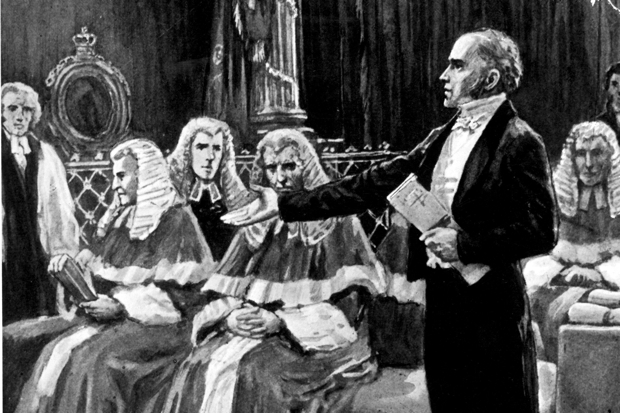I was on the BBC on Sunday morning discussing the government’s new counter-extremism legislation. Unusually for a discussion on this area the debate seemed to me to be constructive and engaging. Perhaps this is a reflection of the changed political weather.
But there was one strange thing – which is why I mention it here – and that is my disagreement with the former Liberal Democrat MP Evan Harris who was on this occasion representing the National Secular Society (NSS). I like Evan, share many of his views and rather like his ever so slightly other-planetary manner (something he shares with that other former Liberal Democrat MP, Julian Huppert). Anyhow, it seemed odd to me that the only sparks in the discussion should have come from my exchanges with the representative of the NSS. But there is a reason, and it became clearer to me towards the end of the show during a segment I didn’t speak in.
This was a discussion about the role of preaching in which a nice clean-cut Christian American preacher explained what he did with his time – that is inviting people to Jesus and saving their souls. Now Evan responded to this in the way that the NSS would – words along the lines of ‘you’re perfectly free to believe whatever you want, so long as you don’t demand taxpayer money for doing so’ and so on. He also mentioned the ‘outrage’ of Anglican bishops in the House of Lords. And I must admit that at this I found myself laughing on air. Not deliberately, or for effect (I doubt the cameras caught it) but because it honestly just suddenly seemed terribly funny to me.
I’ve been hearing this Bishops in the House of Lords line for years and it strikes me as an increasingly eccentric obsession for anybody to have in 2015. There are all sorts of reasons to advocate House of Lords reform, but the presence of Anglican bishops – hardly the most terrifying religious figures of our age – strikes me as approaching the barmy. It is also a fine example of a dated and outmoded form of secularism.
It is difficult for secularists who appear on moral discussion shows because to some extent they are involving themselves in a category error. On the one hand a religious figure talks about the saving of souls and explains their view of the meaning of life. The secular representative then responds by talking about tax arrangements. This is – it would seem to me – not only a misguided way of arguing but a pretty good way, in the long term, to lose.
But then there is the House of Lords point. And there is just something so Victorian-atheist about this point. If I were a representative of the National Secular Society I suppose I might mention this point at the very end of any long list of concerns, but I could not put it anywhere near the top. And that is the thing about much of the outmoded secular voices we hear at the moment. There are very good reasons to be secular, and as extremists and fundamentalists from one religion in particular assert themselves increasingly forcefully the secular worldview will be seen to have many advantages. But secularists will lose what ground they have gained if the targets foremost in their sights are those which posed a problem for secularists a hundred and fifty years ago rather than those who pose a threat to all of us today.







Comments